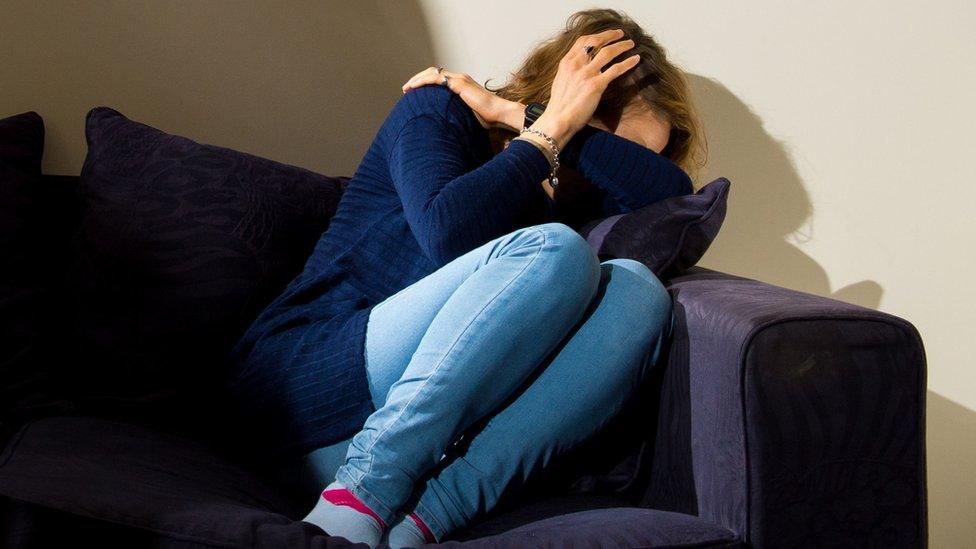Coroner urges government to act on link between abuse and suicide
- Published

A coroner wants the link between domestic abuse and suicide to be better recognised (file image)
A coroner has said the link between domestic abuse and suicide needs to be better recognised following the death of a woman in East Yorkshire.
Jessica Laverack, 34, was found dead at her Beverley home on 2 February 2018.
She had a history of domestic abuse and self-harm, Hull and East Riding area coroner Lorraine Harris concluded.
After Ms Laverack's inquest, Ms Harris wrote to the government calling for a "joint approach" between agencies to help those deemed at risk.
In a prevention of future deaths report, external, dated 27 June 2022 but only published this week, Ms Harris stated there was "a need for the recognition of the link between domestic abuse and suicide".
Returning a narrative conclusion at the end of Ms Laverack's inquest , the coroner said Ms Laverack's "emotional distress" caused alcohol dependence, adding the level of alcohol in her system at the time of her death "would have impaired her cognitive function".
Ms Harris said the absence of an "appropriate, co-ordinated approach", as well as "inadequate information sharing", while not directly responsible for Ms Laverack's death, would have affected her mental health.
The coroner said she had been made aware of "a series of incidents" in which Ms Laverack's former partner had tried to obtain her address. He had also contacted her family.
'Joint approach needed'
While interacting with a number of agencies, including the police, Ms Laverack had disclosed her angst and "on occasion, suicidal ideation", the coroner noted.
She had also attended an Accident and Emergency department having self-harmed. Despite this, it was noted Ms Laverack was motivated to get well and was not deemed high risk.
Ms Harris said Ms Laverack's treatment focused on her alcohol use "rather than an holistic approach to someone with a dual diagnosis".
Lucy Hadley, head of policy at the charity Women's Aid, said almost half of domestic abuse survivors in refuge have experienced depression or suicidal thoughts as a direct result of their ordeals.
She warned the actual number was likely to be far greater as many fail to disclose deteriorating mental health due to stigma around it.
Ms Hadley added: "It is critical that, where someone has died by suicide and there has been a known history of domestic abuse, it is recognised as a 'victim suicide'."
A government spokesperson said: "Deaths related to domestic abuse are a tragedy, and we are committed to working across government to fully support all victims and survivors who have escaped from domestic abuse.
"Our Tackling Domestic Abuse Plan, external includes a range of measures aimed to better understand and tackle suicides which take place following domestic abuse. These include measures to update police guidance on suicide so that it explicitly includes references to domestic abuse and ensures the police consider whether domestic abuse was a contributing factor in cases of unexplained deaths and suspected suicides."
If you have been affected by issues raised in this article, there is information and support available via the BBC Action Line.

Follow BBC East Yorkshire and Lincolnshire on Facebook, external, Twitter, external, and Instagram, external. Send your story ideas to yorkslincs.news@bbc.co.uk, external.